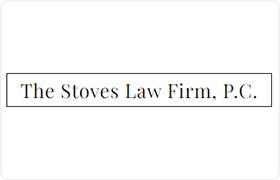Decatur Misdemeanor Lawyer, Alabama
Sponsored Law Firm
-
 x
x

Click For More Info:
-
The Stoves Law Firm, P.C.
9 Office Park Cir Suite 105 Birmingham, AL 35223» view mapCriminal Defense Legal Expertise You Can Rely On
The Stoves Law Firm, P.C. provides outstanding Criminal Defense and Litigation services to individuals and businesses throughout the State of Alabama.
800-818-9390
Not enough matches for Decatur Misdemeanor lawyer.
Below are all Decatur Criminal lawyers.
Jonathan Donald Watson
Criminal, Immigration, Family Law, Personal Injury
Status: In Good Standing Licensed: 14 Years
Paul Ray Holland
Traffic, Employment, Divorce & Family Law, Criminal
Status: In Good Standing Licensed: 33 Years
 Jay Stoves Birmingham, AL
Jay Stoves Birmingham, AL Practice AreasExpertise
Practice AreasExpertise
